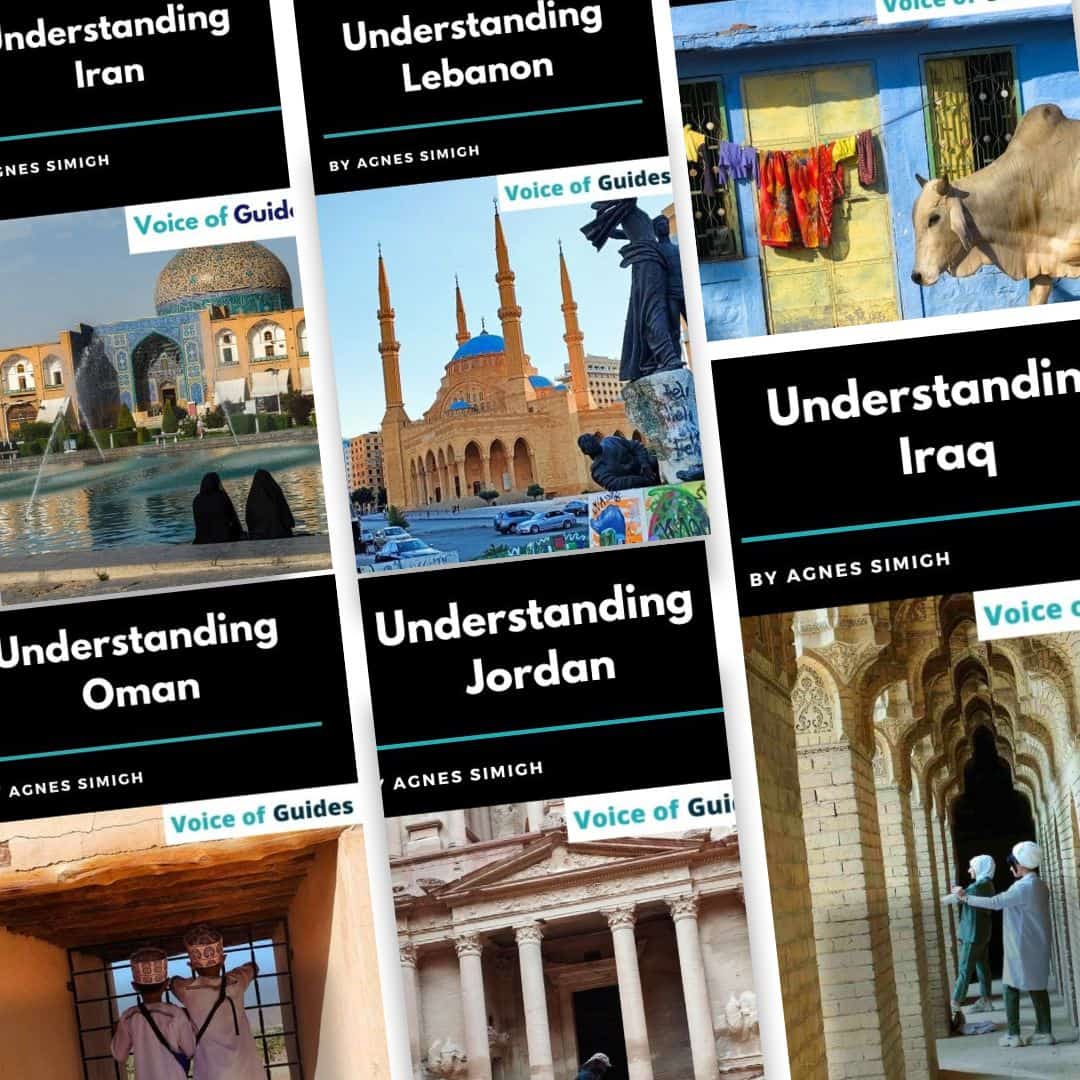Do you want to get a deeper understanding of the history, culture, and current challenges of the Hashemite Kingdom? Here you find the list of the best books about Jordan, from travel guides to books on politics and history.
This article may contain affiliate / compensated links. For full information, please see our disclaimer here.
1. King Abdullah II of Jordan: Our last best chance-The Pursuit of Peace in a Time of Peril
King Abdullah has ruled the Hashemite Kingdom since 1999, facing enormous challenges with the hundreds of thousands of Palestinian, Syrian and Iraqi refugees. In this book, he recounts the significant events of Jordan and his life.
He pursued his studies in London, as Jordan was unsafe because of the Palestinian Liberation Organization (PLO). Later, for security reasons, he was sent to the United States. Upon return, he joined the fights against Israel in 1967. He commanded the country’s Special Forces and became a major general.
King Abdullah II married a famously attractive Kuwaiti Palestinian woman who replaced Queen Noor on the throne as Queen Rania.
After his ascension to the throne, Abdullah II traditionally released 700 prisoners who had not committed a serious crime. But among them was Abu Musab al-Zarqawi, who was responsible for a series of bombings, beheadings, and attacks during the Iraq War. Later, he pledged allegiance to Al-Qaeda and Osama bin Laden. He is held responsible for the attack against three prominent hotels in Amman in 2005 that claimed the lives of 60 people.
King Abdullah’s primary challenge is to create stable economic foundations without oil and other natural resources. With little water and agricultural land, the industry was never significant in Jordan. The population doubled after the influx of Palestinian and Syrian refugees in only three decades, and Jordan is now home to 10 million people.
The King found that education is crucial for economic progress and made English and informatics compulsory from the first class in primary schools. He founded the King’s Academy, a high-level boarding school granting scholarships for underprivileged but gifted children.
In 2001, Jordan became the first Arab state to conclude a free trade agreement with the United States. The custom-free zone at Aqaba was also a great success. Within ten years, Abdullah’s economic policy doubled the GDP per person in Jordan.
It is one of the best books about Jordan’s current ruler and its challenges in modern times.
2. Lion of Jordan: The Life of King Hussein in War and Peace by Avi Shlaim
King Hussein ruled almost half a century in Jordan and is considered the father of modernization. In 1998 he was nearly nominated for the Nobel Prize for his efforts to establish peace in the Middle East. He witnessed his grandfather’s assassination in Jerusalem as a child in 1951 and himself escaped a couple of murder attempts.
He was only 18 years old when he ascended the throne in 1953. At that time, he was much more known for his passion for beautiful women and fast sports cars, not for his political abilities. He completed his military training in Harrow and Sandhurst. Half a century later, he was still regarded as the great survivor of the Middle East and the de facto founder of modern Jordan.
Many misunderstood his peace efforts during the Iraqi war and accused him of taking the side of Saddam Hussein. He had cancer, and after an unsuccessful bone marrow transplant in the USA, he returned to Jordan to die in his homeland. Four American presidents were present at his funeral.
Pin it for later!

Hussein had 11 children out of four marriages.
King Hussein played an active role in international politics, and his commitment to his people was well known in his homeland.
Many Palestinians considered his peace agreement with Israel a betrayal, so the relationship remained problematic until the King’s death.
Understanding King Hussein is crucial to getting a deeper insight into Jordan’s modern history. This comprehensive book about King Hussein and the country’s position in the turmoil of the Middle East is an excellent book about Jordan.
3. Rana Sweis: Voices of Jordan
The testimonies and voices of ordinary men and women provide a better portrait of the country than most history, data-rich analyses. The books contain ten unrelated human stories that reveal the country’s discrepancies. The story about a returned ex-Jihadist shows how radical Islamic movements can gain ground amid unemployment and poverty.
The first woman member of the parliament has the mission to fight discrimination against women. Jordan is one of the few countries in the Middle East where women are in the majority at universities. Still, they are incredibly underrepresented in work life.
The civil servant, part of the outsized public sphere that absorbs 40% of the workforce, still does not earn a decent salary after a quarter-century.
This is one of the best books about Jordan that reveals the country’s human aspects, and the individual stories allow the readers to get a deeper insight into life in Jordan.
4. History of Jordan by Philip Robins
Descendants of the Prophet Muhammad, the Hashemites, ruled Mecca for over 1,000 years and were the custodians of the holiest places in Islam. They lost their influence in Saudi Arabia but guaranteed their survival in Transjordan.
Integrating ten tribes into Transjordan was an enormous challenge. It was an insoluble contradiction that the British promised independence to the Arab people and a homeland to the Jews after the war. In May 1946, Transjordan gained independence, and Abdullah I became King of the Hashemite Kingdom of Jordan. But it still depended on annual British support, and for another 25 years, British troops were stationed in the country.
During the Six-Day War in 1967, Jordan lost the West Bank and East Jerusalem, which meant 40% of its GDP, half of its industrial capacity, 25% of its arable land, and the Christian holy places. The West Bank accounted for 60% of fruit and vegetables and a third of livestock. It also lost 90% of its income from tourism, booming since the 1960s.
It is one of the best books about the modern history of Jordan that gives a detailed overview of its internal and external challenges, including the effects of the Syrian refugee crisis.
5. Leap of Faith: Memoirs of an Unexpected Life by Her Majesty Queen Noor
This is the memoir of the fourth wife of King Hussein, who modernized the country and ruled for almost half a decade. Lisa Halaby became Noor Al Hussein as Queen of Jordan. She came from a prestigious Arab-American family, whose presence in the Hashemite Kingdom was now especially welcome in the beginning. She was a well-educated woman, admitted to Princeton University as the first woman, who graduated as an architect and urban planner. The Jordanian king offered his father to become his advisor. A few months after they first met at the airport, Lisa married king Hussein and faced incredible challenges.
After a miscarriage, they had four children.
She acts as a human rights activist and launches numerous programs to increase women’s employment. Nature protection was also on top of her agenda. She established the Jordan River Foundation to empower society, especially women and children, and improve the quality of life to secure a better future for all Jordanians.
As a Queen, she lived assassination attempts against the king, important historical events, his husbands’ tireless efforts to make peace with Israel and handle the Palestinian cause.
This book gives a great insight into the life of a foreign queen who was trying to find her role in the Jordanian family, contributing to the country’s development.
6. Murder in the Name of Honor: The True Story of One Woman’s Heroic Fight Against an Unbelievable Crime by Rana Husseini
Jordanian Rana Husseini is a renowned journalist and human rights activist who bravely investigated the “honor killings”, a practice still common in the Middle East and other countries with significant immigrant communities. This cultural practice, not specific to Islam, allows family members to kill those who disgraced the family without severe consequences. Thus, the family’s honor is restored. Mainly women, but men can also be victims. Women who became pregnant out of wedlock, failed virginity tests, married somebody of other religion, or just showed any behavior deemed inappropriate might be the target of honor killings in some traditional societies.
Rana Husseini extensively investigated the issue in Jordan and has become the leading advocate of women’s rights. This book recounts several cases that help understand the reason and motivation behind honor killings.
She concludes that the perpetrator is a victim of ancient and unfair traditions that turned a normal human being into a killer. They do not want to kill. They do what society expects from them. Killers who struck in the name of honor usually turned themselves in immediately, proud of what they had done.
“Protective custodies” accommodate women whose families might kill them for violating their families’ honor. They had run away from home after discovering their families were plotting to kill them, while some had survived attempts on their lives by brothers, fathers, and uncles.
Family members often bail the woman out, promising forgiveness only to murder her as soon as she gets home.
Rana Husseini was often blamed for “tarnishing Jordan’s image” and “threatening Jordan’s tourist industry” by exposing the unfair fate of women.
Article 340 of the constitution exempts the murderer or reduces the penalty if he discovers the female relative in an adulterous situation and kills, wounds, or injures one or both of them.
This is a must-read for those who want to learn about the still-existent practice of honor killings in Jordan and worldwide.
7. Married to a Bedouin by Marguerite van Geldermalsen
Marguerite van Geldermalsen, a nurse from New Zealand with Dutch origins, goes on holiday with her friend, where she gets to know Mohammad Abdallah, the Bedouin souvenir seller in Petra. After being invited to sleep in his cave and later to a Bedouin wedding, she falls in love with him. A stranger to the Bedouin culture, the foreign lady observes and adapts to this semi-nomadic lifestyle.
Later they moved to Umm Sayhoun, a Bedouin settlement that the government provided for all Bedouins when it reclaimed Petra for tourism.
Today several Western women are getting married to local men, but her story still gives the best insight into the Bedouin culture told with humor and irony.
Mohammad died since then, and she lives as a widow managing several businesses, renting out a house, or selling souvenirs and has been completely accepted by the local community.
8. Appointment with Death by Agatha Christie
This detective fiction is about the murder that happened among the cliffs of Petra. Hercule Poirot, the renowned Belgian detective, has only 24 hours to solve the mysterious case related to Petra and Jerusalem.
The book is also a great reflection on Agatha Christie’s traveling with her husband, the archeologist Sir Max Mallowan in the Middle East.
It is a perfect read for the fans of Agatha Christie and those who look for fiction about Jordan.
9. Lonely Planet Jordan by Jenny Walker
The Lonely Planet travel guide is a perfect source of information for independent travelers. It outlines how to get from one place to the other with public transportation, what to visit, where to sleep, and where to eat. Besides tons of practical information and recommended itineraries, Lonely Planet also gives an overview of the history, culture, and daily life of the Hashemite Kingdom of Jordan.
10. Bradt Travel guide about Jordan by Carole French
The Bradt travel guide is another excellent book to plan independent travel around Jordan, whether you are interested in cultural travel or hiking in the wadis and the desert. The book gives a great understanding of this gem in the Middle East, from history to current issues.
11. Lawrence in Arabia: War, Deceit, Imperial Folly and the Making of the Modern Middle East by Scott Anderson
Thomas Edward Lawrence, better known as Lawrence of Arabia, died on 19th May 1935. He became world-famous during the First World War fighting along with Arab tribes for the liberation war of the Arab Peninsula. Lawrence of Arabia’s name is inseparable from the history of Jordan in the 20th century.
During his years in the Middle East, he learned Arabic, observed the customs of local people, and gained knowledge that proved essential in the ultimate victory against the Ottoman Empire. He acted as an intermediate between the British and the rebelling Arab tribes.
After his success in the Middle East, he was named Lawrence of Arabia.
The British man became extremely popular among the Arabs. With his courage, perseverance, and reckless attitude, he helped the insurgents to many victories. He made serious efforts to persuade the British public to secure Arab self-determination.
However, it made Lawrence disappointed that after the victory, the Allies “forgot” about their previous promises. Instead of a united Middle Eastern nation-state, they split the region into smaller kingdoms under British and French mandates.
He suffered a severe accident in 1935 after racing on winding roads, noticing two cyclists too late. Lawrence lost control of his vehicle, and six days later, on 19th May, he died of his injuries.
13. Seven Pillars of Wisdom by T. E. Lawrence
This is the personal account of T. E. Lawrence about his experiences during the Arab Revolt of 1916–18 based in Wadi Rum as a member of the British Forces of North Africa.
Travelers who visit Wadi Rum encounter places named after Arabian Lawrence, though without actual proof that he was connected to these sites. Still, his story is inseparable from that of Jordan.
He wrote the book twice because he lost his first manuscript at London Central Station. “Wisdom for seven pillars” is still a recommended read for British soldiers heading to Iraq today.
14. The Desert and the Sown; Travels in Palestine and Syria by Gertrude Bell
The diary-style accounts of Gertrude Bell, the most famous female traveler and political analyst of her time, describe the life and customs of local tribes and Arab people in Greater Syria from Damascus, Jerusalem, Beirut, to Antioch during her trip in 1905 before WWI. This extraordinary woman lets us gain insight into the world hardly known at that time. She comfortably moved as a British woman among Arab sheiks or Bedouins, worked together with Arabian Lawrence, and her knowledge of the Arab world was crucial to creating the new states of the Middle East.
15. Desert Queen: The Extraordinary Life of Gertrude Bell: Adventurer, Adviser to Kings, Ally of Lawrence of Arabia by Janet Wallach
Gertrude Bell came from a wealthy Victorian family. She broke with the conventional life of an aristocratic woman and lived an unusually adventurous life. She had the chance to pursue studies in the college of Oxford and became the first woman to get a prestigious degree in modern history.
Gertrude Bell was an acknowledged archeologist, skilled mountain climber, and experienced traveler in the Middle East. She served the British Army and worked with Lawrence of Arabia during WWI in the Arab Bureau. She helped the British with her extensive knowledge in the fight against the Ottoman Empire.
After the war, she supported King Faisal to ascend the Iraqi throne and continued her research on social and political issues in Mesopotamia. She contributed to drawing the borders of today’s Iraq and was a highly honored woman there.
Some say she was as influential in shaping the Middle East as Lawrence of Arabia.
King Faisal appointed her as director of antiquities and worked hard to catalog the excavated items and display them, which became the basis of the Iraqi Museum.
She was unhappy in her private life and died of an overdose of sleeping pills in 1926. Gertrude Bell is remembered until now in Iraq and is buried in Baghdad.
I hope you find this list of reading useful. If you have something to add to the reading list about Jordan please leave a comment below.

















